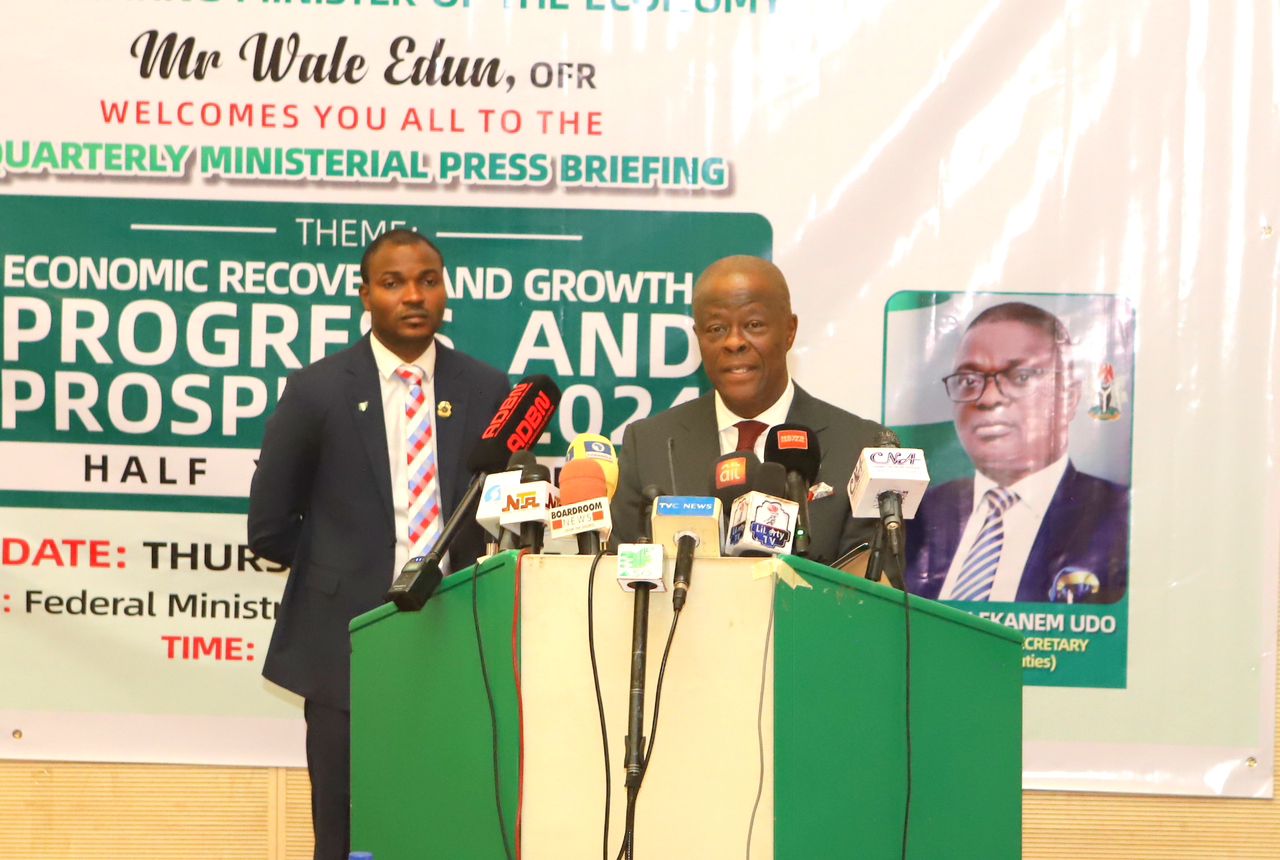Business
Africa Finance Corporation (AFC) Receives Top Accolades at Europe, Middle East, and Africa (EMEA) Finance Achievement Awards

Joel Ajayi
The award affirms AFC’s leadership in structuring and executing complex financial transactions that foster sustainable development across regions
Africa Finance Corporation (www.AfricaFC.org), the continent’s leading infrastructure solutions provider, received top accolades at the EMEA Finance Achievement Awards in London yesterday. AFC won “Most Innovative Bond” and the “Best Supranational Syndicated Loan,” a testament to the Corporation’s strong credit profile and solid track record in capital markets.
“The Most Innovative Bond” accolade in the Debt Capital Markets category recognised AFC’s pioneering JPY 75 billion Samurai Bond Guarantee to the Arab Republic of Egypt, showcasing commitment to innovative financial solutions that support member states’ access to international capital markets and contribute to infrastructure development. Egypt, which became a member state of AFC in 2021 and a shareholder last year, benefited from the landmark bond issuance backed by Sumitomo Mitsui Banking Corporation, with AFC providing a full re-guarantee and SMBC Nikko acting as the Sole Lead Arranger.
The “Best Supranational Syndicated Loan” award celebrates AFC’s success in securing a S$625 million syndicated loan last year, welcoming new lenders from the Middle East and Asia. Initially planned at US$500 million, the transaction was upsized due to a remarkable oversubscription of 62%, reflecting strong investor demand for AFC’s credit. The award affirms AFC’s leadership in structuring and executing complex financial transactions that foster sustainable development across regions.
“These awards are a very welcome validation of AFC’s strong market access, the strength of our credit profile, and our well-established investor engagement program,” said Banji Fehintola, Senior Director of Treasury & Financial Institutions of AFC. “AFC will continue to play a central role in mobilising the capital urgently needed for critical infrastructure to drive industrialisation, transform economies and improve livelihoods in Africa.”
Now in its 16th edition, the EMEA Achievement Awards celebrate exceptional achievements by the banking and finance sectors across Europe, the Middle East, and Africa (EMEA). Award winners chosen by the EMEA Finance editorial team exemplify diligent and innovative work taking place across the EMEA region and driving capital market transactions.
The EMEA Finance Achievement Awards adds to a series of accolades for AFC’s Treasury & Funding teams this year, including “Sovereign, Supra & Agency Treasury & Funding Team of the Year” at the 2024 Bonds, Loans & ESG Capital Markets Africa Awards. The JPY 75 billion Samurai Bond Guarantee to Egypt also earned AFC the “Innovation of the Year (MENA)” award recently at the IJGlobal Awards Gala.
Business
Economy Stabilizing and Positioning for Growth, As FG Exits Ways and Means Borrowing Mechanism

Joel Ajayi
The Federal Government has disclosed that it has made significant strides in its economic reforms, well on its way to achieving a step-change in the revenues of the Federal government; closely in line with the budget for 2024. The Federal Government also announced its exit from the Ways and Means borrowing mechanism.
The Honourable Minister of Finance and Coordinating Minister of the Economy, Mr. Wale Edun stated this today in his office in Abuja during the half-year review Ministerial Press Briefing with the theme: *Economic Recovery and Growth: Progress and Prospects 2024.
He highlighted successes of the Government’s reforms, citing a projected budget deficit of 4% in the 2024 Fiscal Year. He also acknowledged the temporary hardships caused by the reforms but assured that Nigerians would soon benefit from the expected outcomes as the well coordinated economic policies of the Federal Government are beginning to yield results as shown in the slowing in the rate of growth of inflation, increasing foreign investments relative to the same period in the previous year, amongst other positive fiscal yardsticks that are being noted.
The Minister informed that one of the major priorities of the President Bola Ahmed Tinubu-led Administration in the immediate term is to reduce food prices and focus on providing all the necessary support to increase local food production, given the impact of high food prices on inflation. He noted that efforts are underway to achieve this goal.
Edun emphasized the President’s commitment to the welfare of ordinary Nigerians and the Government’s efforts to ensure transparency and accountability in its social protection initiatives including but not limited to the acceleration of the direct benefit transfer programme that has now been restarted following an initial pause of the programme to improve transparency in its delivery. He mentioned that, following the resumption of payments, over 600,000 households have already received this direct transfer this week.
As part of efforts to further improve foreign exchange liquidity and to showcase the resilience of the Nigerian financial system as economic stability takes root, the Minister also announced plans for the Federal Government to issue domestic USD denominated securities of up to US$500 million, in the first instance to attract investment from Diaspora Nigerians and Nigerians with savings held abroad.
Edun acknowledged the Supreme Court’s judgment on direct payment of federation allocations to Local Government Councils, and reiterated the Government’s commitment to implementing the judgement .
The Minister affirmed that with the outcome of the first half of 2024, indeed the Nigerian economy is turning the corner; and with macro-economic stability, the economy is being well positioned for sustained and inclusive growth that creates jobs, lifts millions out of poverty, and drives domestic and foreign investments that would improve the general well-being of the average Nigerian.
-

 Featured5 years ago
Featured5 years agoLampard Names New Chelsea Manager
-

 Featured4 years ago
Featured4 years agoFG To Extends Lockdown In FCT, Lagos Ogun states For 7days
-

 Featured5 years ago
Featured5 years agoNYSC Dismisses Report Of DG’s Plan To Islamize Benue Orientation Camp
-

 Featured4 years ago
Featured4 years agoChildren Custody: Court Adjourns Mike Ezuruonye, Wife’s Case To April 7
-

 Featured3 years ago
Featured3 years agoTransfer Saga: How Mikel Obi Refused to compensate me After I Linked Him Worth $4m Deal In Kuwait SC – Okafor
-
Sports2 years ago
TINUBU LAMBAST DELE MOMODU
-

 News11 months ago
News11 months agoJubilation In Kaduna As Tribunal Upholds Ekene Adam Winner Of Reps Election
-
Featured5 years ago
Board urges FG to establish one-stop rehabilitation centres in 6 geopolitical zones
